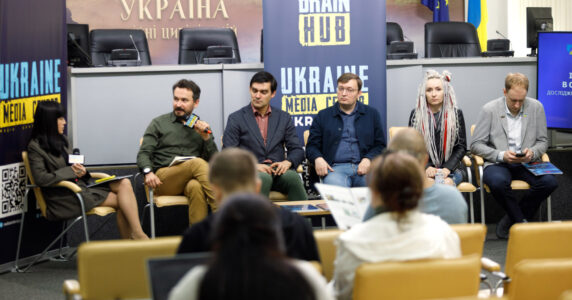Navigation and useful materials
Using migrants as a weapon against the European Union is not a new tactic by self-proclaimed President of Belarus Alexander Lukashenko.
This was stated by Centre for Strategic Communication and Information Security expert Maksym Mayorov during the discussion “Lukashenko’s Migrant Invasion: Objectives and Information Support of Hybrid Aggression Against the EU.”
“Similar things were happening back in 2011, when Muammar Gaddafi used refugees as a weapon against Italy, which he considered an enemy country, sending thousands of African asylum seekers on boats, who died on the way. Propaganda used this as a manifestation of Europeans’ cruelty. Gaddafi was effectively a teacher for Lukashenko and Putin,” he said.
According to the expert, EU countries have always been a desirable destination for migrants from less affluent regions and war-torn countries.
“The EU has shown a sincere intention and aspiration to solve the problematic situation with migrants and has invested in the stability of neighboring countries. But this policy was clearly not designed for a situation when migrants and refugees are used as a weapon against the European Union. It was a know-how for which European policy was not ready,” Mayorov explained.
He reminded that back in 2002, Lukashenko threatened the EU with 150,000 refugees from Afghanistan and Pakistan, who are “ready to move to the EU from Belarus” if the European Union did not pay and help Belarus.
“This was effectively blackmail, which, however, did not escalate into a crisis. And now this threat has been put into action by Lukashenko in alliance with Putin,” the Center’s expert concluded.
If you have found a spelling error, please, notify us by selecting that text and pressing Ctrl+Enter.


